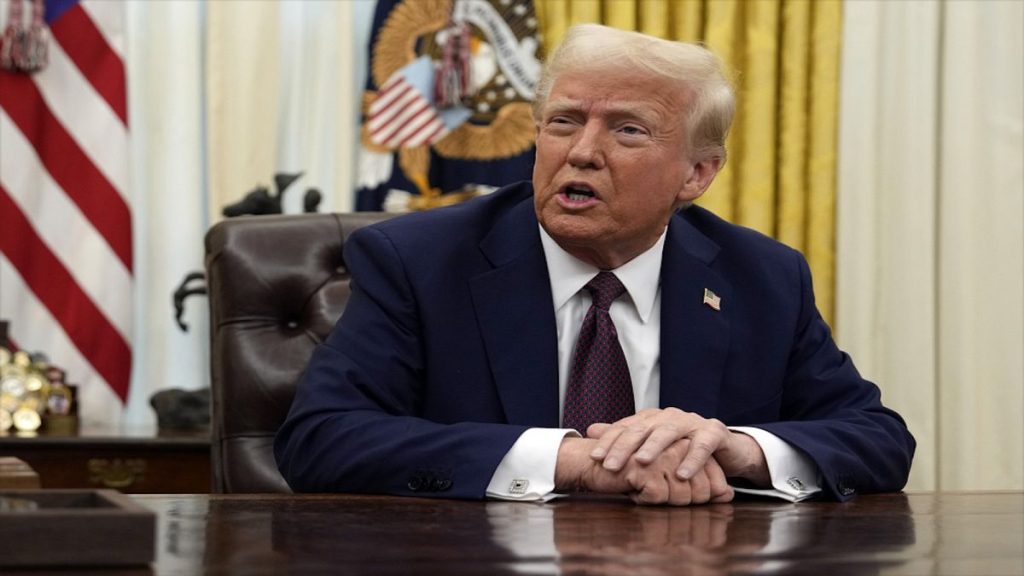The legal battle over President Trump’s executive order attempting to redefine birthright citizenship took a significant turn when US District Judge John Coughenour issued a temporary restraining order blocking the order’s implementation nationwide. Judge Coughenour, a Ronald Reagan appointee, forcefully criticized the order during the first hearing on the matter, labeling it "blatantly unconstitutional" and expressing astonishment at its clear violation of established legal principles. This initial legal victory for the coalition of states challenging the order represents a crucial step in the ongoing fight to protect the longstanding interpretation of the 14th Amendment. The judge’s sharp rebuke of the administration’s arguments underscores the profound constitutional questions raised by the executive order.
The temporary restraining order, granted in response to a lawsuit filed by Arizona, Illinois, Oregon, and Washington, halts the executive order’s enforcement across the country. This represents a significant setback for the Trump administration’s efforts to narrow the scope of birthright citizenship. The case before Judge Coughenour is just one of several legal challenges mounted against the executive order by a total of 22 states and various immigrant rights groups. These lawsuits emphasize the constitutional guarantee of citizenship for those born within the United States, a principle deeply rooted in the 14th Amendment and consistently upheld by legal precedent for over a century. The personal stories included in the legal filings, such as those of attorney generals who are themselves birthright citizens and pregnant women fearing for their children’s future citizenship status, underscore the human impact of this contentious legal battle.
Judge Coughenour’s pointed questioning of Justice Department lawyer Brett Shumate during the hearing highlighted the weakness of the administration’s legal arguments. The judge repeatedly pressed Shumate to explain how the executive order could be considered constitutional, expressing incredulity at the administration’s interpretation of the 14th Amendment. The judge’s decades of experience on the bench lent weight to his criticism, as he noted the rarity of encountering a case where the challenged action so blatantly contradicted constitutional principles. This strong judicial condemnation of the executive order signals the uphill legal battle the administration faces in defending its position.
The core of the legal dispute revolves around the interpretation of the 14th Amendment, ratified in 1868 following the Civil War. The amendment’s Citizenship Clause unequivocally states that "All persons born or naturalized in the United States and subject to the jurisdiction thereof, are citizens of the United States and of the State wherein they reside." Trump’s executive order attempts to circumvent this established principle by arguing that children born to non-citizens are not "subject to the jurisdiction" of the United States, thereby excluding them from birthright citizenship. This interpretation contradicts the longstanding understanding of the 14th Amendment, which has traditionally been interpreted to grant citizenship to virtually all individuals born on US soil, regardless of their parents’ immigration status.
The principle of birthright citizenship, also known as jus soli or "right of the soil," is practiced in approximately 30 countries worldwide, predominantly in the Americas, including Canada and Mexico. The United States’ adherence to this principle has been a cornerstone of its immigration policy and a defining feature of its national identity. The Trump administration’s attempt to redefine birthright citizenship represents a significant departure from this established norm and has sparked widespread concern about its potential impact on families and the future of American citizenship. The legal challenges to the executive order highlight the determination of various states and advocacy groups to protect the constitutional guarantee of birthright citizenship.
The legal fight over birthright citizenship promises to be a protracted and complex process. The temporary restraining order issued by Judge Coughenour represents an early victory for those challenging the executive order, but the administration is likely to appeal the decision. The ultimate resolution of this issue will have profound implications for the future of immigration policy and the interpretation of the 14th Amendment. The ongoing legal battles across multiple jurisdictions highlight the deep divisions within the country over immigration and the meaning of citizenship. The courts will play a crucial role in determining the constitutionality of the executive order and the future of birthright citizenship in the United States.














